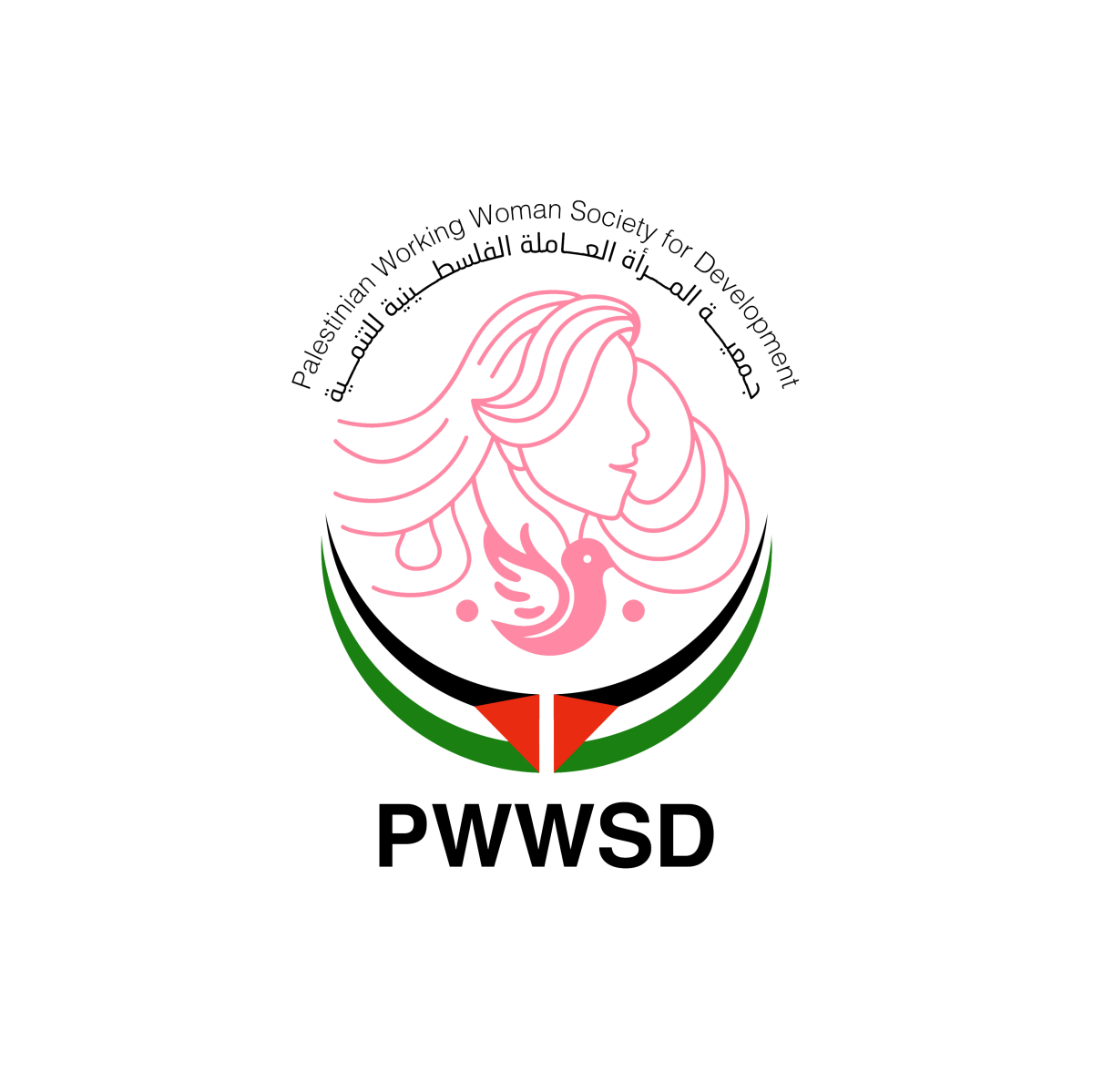Research Study on the Impact of the Israeli Military Occupation on the Access of Rural Women to their Economic Rights - دراسة بحثية أثر الاحتلال العسكري الإسرائيلي على وصول المرأة الريفية لحقوقها الاقتصادية
Executive Summary:
The agricultural sector in Palestine had long been considered one of the most important pillars of the Palestinian economy comprising a sizeable portion of the total Gross Domestic Product (GDP) and significantly contributing to family income and food security at the national level. However, in recent years its contribution to the Palestinian economy has declined significantly, especially in the West Bank. The Palestinian agricultural sector’s contribution to GDP has been fluctuating, from 30% in 1970 to 18% in 1987 and continued to decline to only 11% in 2003 until reaching 3.2 % in 2019.[1] The percentage of workers in the agriculture, hunting, and fishing sector has declined in recent years among both males and females. In the West Bank and Gaza Strip, the percentage of workers decreased from 8.1% for males and 21% for females in 2014, to 5.9% for males and 6.7% for females in the year 2019. The percentage of women working in agriculture as employers does not exceed 0.3% compared to 76.3% working as unpaid family workers. According to the World Food Programme 2019 Annual Country Report on Palestine, the agricultural sector employs 11% of the Palestinian workforce, 30 percent of which are women[2].
The diminishment of the Palestinian agricultural sector is due in large part to of Israeli violations against the agricultural and cooperatives sectors and the restrictions these violations impose on all stages of agricultural production. In the pre-production and production stages, violations include confiscation of land and water resources, and other inputs of agricultural production. Land confiscation constitutes the settlement enterprise, including the construction of the Apartheid Wall, as well as military orders that designate West Bank lands as closed military zones, firing zones, and natural reserves. In the Gaza Strip, agricultural lands are leveled and turned into security isolation areas, also known as Access Restriction Areas, which account for 35%[3] of the total agricultural land in the entire Gaza Strip. Additionally, in the week 16-23 April 2020, the Women’s Centre for Legal Aid and Counselling (WCLAC) field researchers received reports from 11 women about chemical spraying of agricultural land in Gaza by Israeli planes, making it impossible for farmers to use their land for nearly 10 days. This is particularly devastating to the many women who rely on agriculture to support themselves and their families. It exacerbates the economic stress that already exists from blockade and the effects of COVID-19 on the economy and trade.[4]
The occupation also confiscates and controls natural water sources, determining the quantities of water usage. Similarly, several policies are imposed on the introduction of pesticides and necessary fertilizers under flimsy security pretexts. The restriction on these necessary inputs leads to the deterioration of the quality and the quantity of agricultural production. The violations extend all the way to the post-production stage of packaging, storing, and marketing, as Israeli movement and access restrictions, has fragmented the West Bank economy[5] into smaller disconnected markets. This has increased the time and costs to transport goods from one area in the West Bank to another, and from the West Bank to the rest of the world. As a result, the competitiveness of Palestinian goods in local and export markets has weakened. [6]
The aforementioned violations and restrictive policies combined pose a heavy price on farmers, especially women. These policies impose multi-faceted challenges on women in terms of their productive capacity to compete profitably, coupled with the absence of opportunities for trade exchanges at the local and international levels. This is combined with the high cost of raw materials, high export fees, unfair competition in the local markets with cheaper Israeli products that have a lower cost of production and are often subsidized[7], in contrast with the Palestinian Authority’s neoliberal economic policies which do not provide any protection for women’s or Palestinians’ products from unfair competition.[8]
These challenges and impacts on Palestinian women farmers have multiplied in light of the Covid-19 pandemic, and the subsequent declaration of a state of emergency in the Palestinian territory. The spread of the pandemic has affected 95% of Palestinian women micro, small and medium enterprises negatively, and has resulted in the closure of 27% of the micro, small and medium enterprises owned by women[9].
Israeli occupation policies violation International Humanitarian and Human Rights law, particularly in its forced displacement of the Palestinian population to the benefit of Israeli settlers as this constitutes an apartheid regime. Palestinians’ right to self-determination is continuously being violated, the inadmissibility of acquisition of territory through the use of force consistently ignored, and Palestinians’ rights to work, human security, participation in decision-making, and freedom of movement and property rights is being violated, the impacts of which are all especially devastating for Palestinian women in general and rural women in particular.
The full development of the agricultural sector is not possible under continuous occupation; however, this does not absolve the international community, funders, Palestinian governmental institutions, and Palestinian civil society from their responsibilities in protecting, improving, and developing this sector as much as is possible until the occupation is finally ended. Among the paper’s recommendations to this end are increased advocacy, budget monitoring, coordination and concerted efforts, the adoption of development policies based on gender equality for and empowerment of women farmers and small farmers, and facilitating cooperative growth through subsidizing cooperative products and reducing related fees, such as land registration fees.
الملخص التنفيذي
على الرغم من اعتبار القطاع الزراعي من أهم ركائز الاقتصاد الفلسطيني؛ لمساهمته المباشرة في الناتج المحلي الإجمالي ودخل الأسرة والأمن الغذائي على المستوى الوطني، إلّا أن مساهمة القطاع الزراعي في الضفة الغربية في الاقتصاد الفلسطيني تراجعت بشكل كبير في الآونة الأخيرة، كما تراجعت مساهمة القطاع الزراعي الفلسطيني في الناتج المحلي الإجمالي من 30٪ عام 1970 إلى 18٪ عام 1987 ، واستمرت في الانخفاض إلى 11٪ فقط عام 2003 حتى وصلت إلى 3.2٪ عام 2019 [1]. بحسب تقرير برنامج الأغذية العالمي السنوي لعام 2019 عن فلسطين يوظف القطاع الزراعي 11٪ من القوى العاملة الفلسطينية و30٪ منهم نساء.[2]
تتعدد الانتهاكات الاسرائيلية ضد قطاعي الزراعة والتعاونيات كقطاعيين حيويين في الاقتصاد الفلسطيني، في إطار استهداف التواجد الفلسطيني على الأرض في جميع مراحل ما قبل وخلال الانتاج الزراعي. وتتضمن هذه الانتهاكات مصادرة الأراضي لخدمة الاستيطان ومنظومته، ولصالح جدار الضم والتوسع وتحديد الأراضي كمناطق عسكرية مغلقة أو محميات طبيعية، إلى جانب تقييد الوصول إلى الأرض بشتى الطرق. ففي قطاع غزة، على سبيل المثال، يتم ذلك من خلال تجريف الأراضي الزراعية وتحويلها لمناطق عزل أمني، والتي تصل نسبتها إلى 35%[3] من مجمل الأراضي الزراعية في القطاع، مما يمنع وصول الفلسطينيين إلى هذه الأراضي بشكل كامل أو جزئي وفي الأسبوع 16-23 نيسان / أبريل 2020، تلقى الباحثون في مركز المرأة للإرشاد القانوني والاجتماعي (WCLAC) تقارير من 11 امرأة حول الرش الكيميائي للأراضي الزراعية في غزة بواسطة الطائرات الإسرائيلية، مما يجعل من المستحيل على المزارعين استخدام أراضيهم لما يقرب من 10 أيام. وهذا أمر مدمر بشكل خاص للعديد من النساء اللواتي يعتمدن على الزراعة لإعالة أنفسهن وأسرهن، وهذا يفاقم الضغط الاقتصادي نتيجة الحصار وتأثيرات COVID-19 على الاقتصاد والتجارة.[4] .
بالنسبة للمياه، الضرورية للزراعة، فان سياسة الاحتلال تقوم على السيطرة والتحكم بمصادر المياه الطبيعية الفلسطينية، وتحديد كميات المياه المستخدمة، وفرض قيود على تزامن وجود المزارعين وتوفر المياه في الأراضي الزراعية. وتشمل ساسات الاحتلال كذلك منع إدخال المبيدات الحشرية والأسمدة الضرورية، تحت ذرائع أمنية واهية، مما يؤدي إلى تردّي جودة وكمية الإنتاج الزراعي. وتتواصل الانتهاكات الى مرحلة ما بعد الانتاج من تغليف وتخزين وتسويق للمنتوج الزراعي بفعل السياسات التقويضية التي تسعى بمجملها لوضع سقف غير مرئي لتطور هذا القطاع[5] مما أدى الى تجزئة اقتصاد الضفة الغربية إلى أسواق أصغر منفصلة وغير مترابطة، وأفضى إلى زيادة الوقت والتكاليف لنقل البضائع من منطقة في الضفة الغربية إلى أخرى، ومن الضفة الغربية إلى بقية العالم، وهو ما اضعف قدرة السلع الفلسطينية على المنافسة في الأسواق المحلية وأسواق التصدير.[6]
يدفع المزارعون وصغار المزارعين وفي مقدمتهم النساء الثمن الأكبر لهذه السياسات والانتهاكات مجتمعة. فهي تفرض تحديات مضاعفة على النساء من حيث تمحورها حول غياب القدرة الإنتاجية للتنافس بشكل مربح على المستويين المحلي والدولي، وغياب فرص التبادل التجاري على المستويين المحلي والدولي، وارتفاع أسعار المواد الخام، وارتفاع رسوم التصدير، والمنافسة غير العادلة في الأسواق المحلية بسبب المنتجات الإسرائيلية الأقل سعراً نظراً لتدني تكلفة الانتاج، وغياب آليات الحماية الوطنية لمنتجات النساء أو المنتجات الفلسطينية من المنافسة غير العادلة.[7].
تضاعفت هذه التحديات والآثار على المزارعات الفلسطينيات في ظل انتشار فيروس كوفيد-19 وما تبعه من إعلان لحالة الطوارئ في الأراضي الفلسطينية. فقد أدى انتشار الجائحة إلى تأثر 95% من النساء الفلسطينيات صاحبات المشاريع متناهية الصغر والصغيرة والمتوسطة بشكل سلبي، إضافة إلى إغلاق 27% من الشركات المتناهية الصغر والصغيرة والمتوسطة التي تملكها النساء.[8]
تعتبر هذه السياسات والإجراءات والممارسات من قبل الاحتلال انتهاكاً لمختلف أفرع القانون الدولي، بما في ذلك القانون الدولي الإنساني وبالأخص المادة 49(1) و49(6) من اتفاقية جنيف الرابعة، وقرار مجلس الأمن 1325 وما تبعه من قرارات ضمن أجندة المرأة والأمن والسلام، والقانون الدولي لحقوق الإنسان بما فيها التوصية العامة 34 الصادرة عن لجنة القضاء على جميع أشكال التمييز ضد المرأة (سيداو) حول المرأة الريفية. والمادتان 6(1) و14 من العهد الدولي الخاص بالحقوق الاقتصادية والاجتماعية والثقافية، والقانون الدولي الجنائي وبالتحديد المادة 7(أ)(د) حول التهجير القسري كجريمة ضد الإنسانية، وكذلك المادة 8(أ)(4) حول تدمير الممتلكات والمنشآت، والمادة 8(أ)(7) حول التهجير القسري، والمادة 8(ب)(8) حول الاستيطان كجرائم حرب، علماً بأن جميع فروع القانون الدولي الآنف ذكرها تنطبق بمجملها على دولة فلسطين المحتلة. إن هذه السياسات والممارسات الاحتلالية التي تستهدف القطاع الزراعي بشكل مقصود للحد من نموه من خلال الاستيلاء على الأرض والمصادر الإنتاجية مما يسهم في التهجير القسري للسكان الفلسطينيين وفرض نظام فصل عنصري من أجل تصفية القضية الوطنية الفلسطينية، الذي يمثل انتهاك صارخاً لمنظومة الحقوق الدولية، وفي مقدمتها الحق في تقرير المصير، وعدم جواز الاستيلاء على الأراضي باستخدام القوة، والحق في العمل والحق في الأمن الإنساني، والمشاركة في صنع القرار، وحرية التنقل والملكية للنساء الفلسطينيات عموماً والنساء الفلسطينيات في الريف الفلسطيني خصوصاً.






